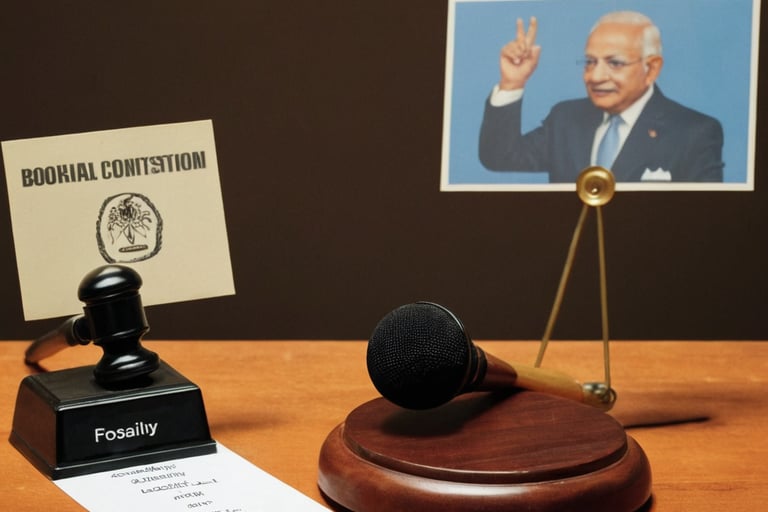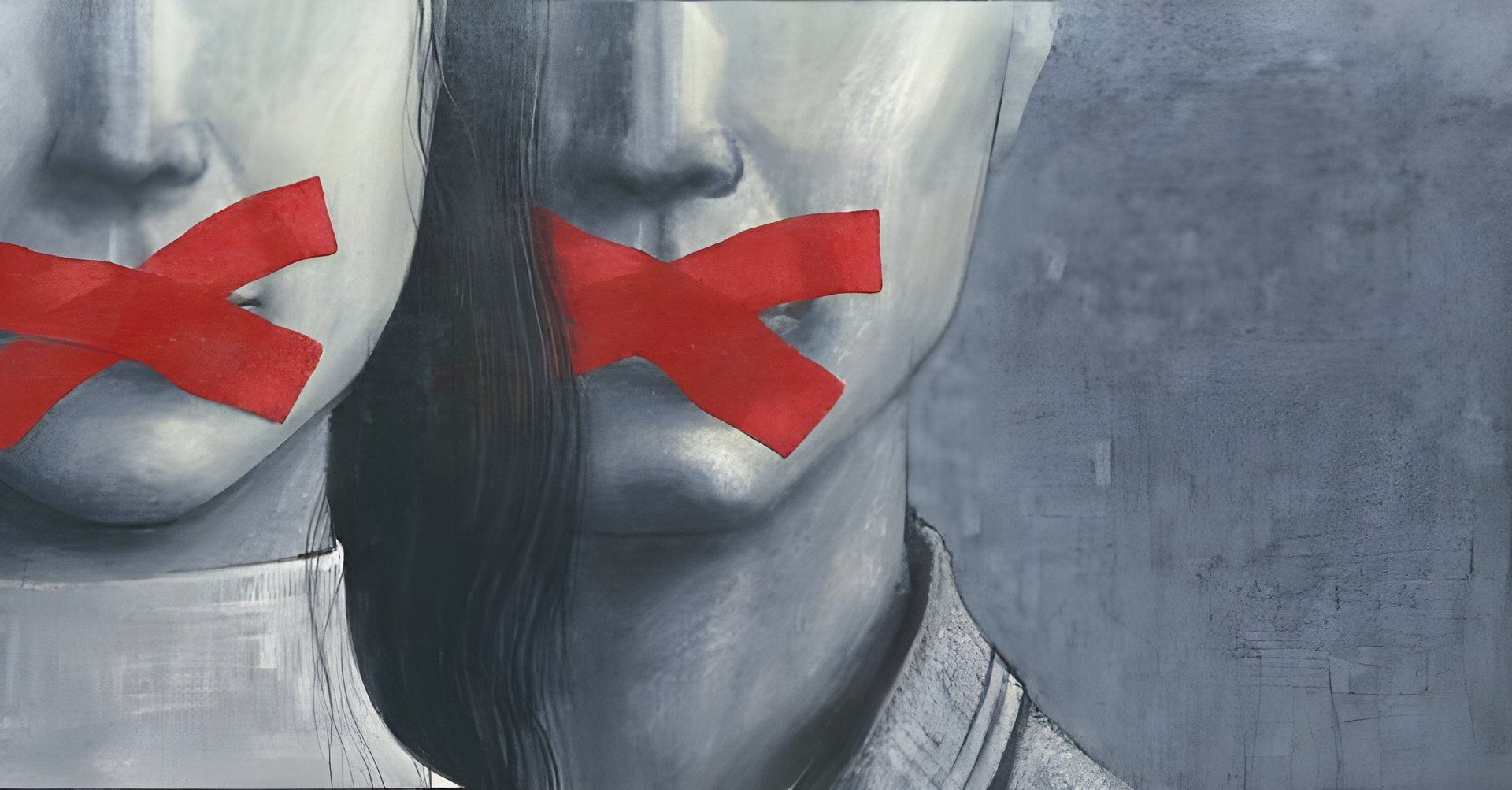Free Speech? More Like Free Until Someone Gets Offended
The rush to introduce these changes in the constitution reflects the various legal and political challenges faced by the Nehru government. The cases of Romesh Thappar and Brij Bhushan struck down laws restricting speech because the original Article 19(2) did not explicitly cover “public order” or other grounds. The government had also introduced “friendly relations with foreign states” and “incitement to an offense” stating communal tension and cold war as the prime reasons. It is argued that these changes were made to seek a balance between free expression and national stability.
Ground in the original Constitution of 1950:
Security of the State
Decency or Morality
Contempt of Court
Defamation (Libel and Slander)
The original text of the Article 19(2) in 1950 read:
“Nothing in sub-clause (a) of clause (1) shall affect the operation of any existing law in so far as it relates to, or prevent the State from making any law relating to, libel, slander, defamation, contempt of court or any matter which offends against decency or morality or which undermines the security of, or tends to overthrow, the State."
Grounds after the First Amendment 1951:
Security of the State
Decency or Morality
Contempt of Court
Defamation (Libel and Slander)
Public Order
Friendly Relations with Foreign States
Incitement to an Offence
Revised Text After 1951 Amendment:
"Nothing in sub-clause (a) of clause (1) shall affect the operation of any existing law, or prevent the State from making any law, in so far as such law imposes reasonable restrictions on the exercise of the right conferred by the said sub-clause in the interests of the security of the State, friendly relations with foreign States, public order, decency or morality, or in relation to contempt of court, defamation or incitement to an offense."
WHAT HISTORY TELL US?
The First Constitutional Amendment has always been surrounded by controversy. It was enacted by a Provisional Parliament, elected on a limited franchise and consisting of only one house after the constituent assembly transformed itself into this interim body. We see that the amendment was introduced because of few judgments passed by the Apex court making it difficult for the State on the administrative and legislative front.
Before the First Constitutional Amendment, two landmark judgments of the Apex Court were the primary reason for its introduction, Starting with the Romesh Thapar v. State of Madras. In this case, the Apex court struck down the Madras Maintenance of Public Order Act on the ground that it violated freedom of the press. The Court ruled that Article 19(2) did not explicitly include ‘Public order’, leaving the Madras government unprotected.
When the Madras government banned Cross Roads, a left-leaning magazine for criticizing the government's foreign policies under section 9(1-A) of the Madras Maintenance of Public Order Act, 1949, which was later declared unconstitutional by the Apex court. This provision of the act gave power to the state to impose reasonable restrictions for the wider purpose of securing public safety. Ultimately the court had to clarify what ‘public safety’ and ‘public order’ mean. State government argued that these terms are similar to the “undermining the security of the state” which is already covered in Article 19(2). However, the Apex Court identified clear and significant differences between both the terms and struck down the provision.
In Brij Bhushan v. State of Delhi, we see a similar instance where the government attempted to censor the RSS mouthpiece ‘Organiser’ which was critical of government policies. The Chief Commissioner of Delhi issued a “pre-censorship order” requiring the Organizer to submit content for scrutiny, which was later challenged by its publisher Brij Bhushan. The verdict of the Apex court followed the same pattern as in Romesh Thappar. The order, issued under the East Punjab Public Safety Act, of 1949 allowed the pre-publication scrutiny of the material deemed prejudicial to the public safety or the maintenance of public order. However, the Court struck down the order, ruling that 'public order' and 'public safety' were not permissible grounds under Article 19(2) at the time."
These two rules in 1950 laid out inadequacy of the Article 19(2). The Romesh Thappar and Brij Bhushan decisions not only frustrated state efforts to curb provocative publications amid post-partition unrest and rising communal tensions but also highlighted the judiciary's strict interpretation of free speech protections. With this setback, the provisional parliament introduced the first constitutional amendment in 1951 adding “Public Order”, “Friendly Relations with Foreign states”, and “Incitement to an Offence” to Article 19(2) this expansion aimed to empower the government to regulate speech more effectively reflecting a pragmatic shift towards balancing individual Liberty with the demand of national stability in the turbulent era.
Free Speech Today: A Delicate Balance
India takes pride in being the world's largest democracy, guaranteeing fundamental rights to its citizens, including freedom of speech and expression under Article 19(1)(a). Yet, we see the ongoing struggle between free speech and censorship persists as a key issue, particularly in the comedy, entertainment, and media industries. These areas remain grey zones, leading to repeated cycles of outrages.
Comedy, for example, relies heavily on subjective humor. A joke that one person finds humorous may be offensive to another. The difficulty emerges when this subjectivity leads to censorship prohibitions and legal measures. While the correct response is critical, the question remains: Should we cancel, ban, or censor information, or should we let human preferences dictate what we consume?
The Fine Line Between Morality and Law
To understand what is right and wrong in the space of comedy, we need to see the difference between Morality and Legality. To put it in simple words, Morality is personal, while legality is absolute. A joke may be offensive to some, but that doesn’t make it illegal. Boycotting is a personal choice while banning sets a dangerous precedent. History shows us that bans often backfire, drawing more attention to the content–just as Gujarat's prohibition on alcohol led to a thriving black market.
Morality is subjective and varies by individual, era, and culture. Morality is best molded by religious principles, social standards, and personal convictions, all of which are always shifting. Legality, on the other hand, is extremely objective and is founded on well-defined laws that apply equally to all individuals, independent of personal moral beliefs. The rules give a formal framework for determining what is allowed and what is criminal, providing consistency in governance while protecting free speech within established limitations
When we consider freedom of speech, we must recognize that something immoral does not have to be illegal. A joke may be offensive sometimes, but unless it is inducing violence or violates any legal boundaries, it does not technically break the law. A mature democracy must safeguard this freedom accommodating diverse moral viewpoints ensuring that they are within the legal boundaries and they are not weaponised and wrongfully used by unscrupulous elements of the society. People often confuse morality with legality, believing that personal convictions should dictate legal action. This creates an environment where emotions overwrite legal reasoning, fueling cancel culture and unnecessary censorship, even when the law is not been broken.
The Bigger Picture: What Are We Prioritizing?
Comedy exists in the gray area, inherently subjective, and completely depends upon what kind of jokes one can digest without taking offense. This can be understood through a simple analogy: India is home to diverse cuisine, each dish offering a unique taste. Some people might reject a dish solely on its appearance, while others relish it. Yet this doesn’t make the dish inherently bad—just as with comedy.
There should be a balanced approach: boycott content deemed morally objectionable, but refrain from banning it; if something is legally wrong, the due process of law can be followed. This distinction preserves freedom while preventing misuse.
Kunal Kamra, India’s Got Latent, AIB Knockout Roast, MTV Roadies, and the list is long… every few months we see the same cycle of rage.
1️⃣Comedian makes a joke. (losing their mind)
2️⃣ People get mad. (X trends)
3️⃣ FIR filed (because why not).
4️⃣ Boycott, ban, cancel.
5️⃣ Politicians suddenly care about “values.”
And it's a miracle that every controversy in our country, whatever it may be related to, has to end with RELIGION. Debate in India over freedom of speech is not just about the sentiment sense, but it's about the fundamental distinction between what is offensive and what is illegal. Today comedian is censored for a joke; tomorrow, artists or writers could be silenced for expressing inconvenient truths.
This isn’t about morality, legality, or culture—it’s a glorified outrage circus where politicians, celebs, and online warriors fight for relevance. Meanwhile, the real issues, the ones that actually matter, fade into the background. Maybe the real joke isn’t on them. It’s on us.
About the Author- Palaksh K. is a final-year law student at the Government Law College, Mumbai.
References
Brij Bhushan & Another v. State of Delhi, AIR 1950 SC 129.
Romesh Thappar v. State of Madras, AIR 1950 SC 124.
Constitution of India, 1950.
The Constitution (First Amendment) Act, 1951.
Indian History Collective, How the First Amendment to the Indian Constitution Circumscribed Our Freedoms & How It Was Passed, https://indianhistorycollective.com/how-the-first-amendment-to-the-indian-constitution-circumscribed-our-freedoms-how-it-was-passed-amendmentoftheconstitution-nehruhistory-constitutional-gov-congressbill-parliamentarydemocracy/
Government of India, Amendments to the Constitution of India, https://www.india.gov.in/my-government/constitution-india/amendments/constitution-india-first-amendment-act-1951
Indira Gandhi National Centre for the Arts (IGNCA), Brij Bhushan And Another vs The State Of Delhi (26 May 1950), https://ignca.gov.in/Asi_data/7589.pdf
Indian Express, Nehru and the First Amendment of the Constitution: Explained, https://indianexpress.com/article/political-pulse/nehru-first-amendment-constitution-anurag-thakur-speech-explained-9427900/
Supreme Court Observer, Freedom of Speech and Constitutional Nostalgia, https://www.scobserver.in/75-years-of-sc/freedom-of-speech-and-constitutional-nostalgia/



